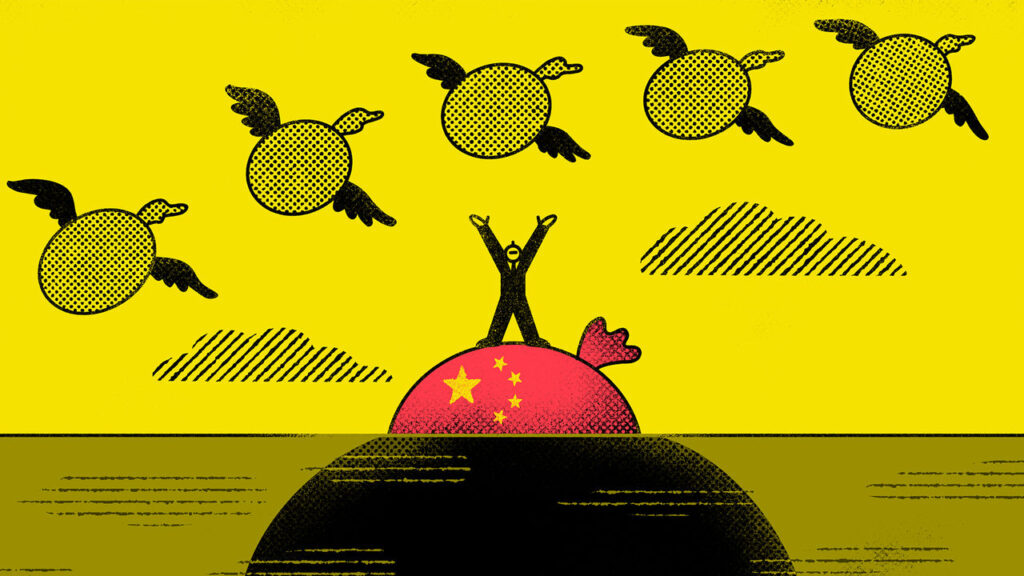The simple reality of international finance means that countries seeking to borrow money often find themselves at the mercy of various interdependent factors. One notable aspect of this dynamic is the relationship between borrowing from China and the subsequent cost of borrowing from alternative sources. In recent years, as China’s influence in global finance has grown, many developing and even some developed nations have entered into borrowing agreements with the Chinese government or Chinese state-owned enterprises. While these agreements can provide much-needed capital for infrastructure projects and economic development, they can also lead to complications that increase the overall cost of borrowing from other nations and private financial institutions.
At the heart of the issue is the nature of loans that countries receive from China, which often come under the aegis of the Belt and Road Initiative (BRI). This ambitious policy, launched by President Xi Jinping in 2013, aims to expand China’s economic footprint across Asia, Europe, and Africa by investing in infrastructure projects such as roads, bridges, railways, and ports. While these projects can provide numerous economic benefits to the recipient nations, they do not come without hidden costs. High-interest rates, repayment timelines, and the inherent risks associated with debt dependency on a single party can create a precarious situation for these countries.
By taking on debt from China, countries inadvertently alter their risk profiles. When they seek additional loans from alternative lenders, such as the International Monetary Fund (IMF), the World Bank, or other countries, financial institutions may view them as higher risk. This perception can increase the interest rates that these countries face when borrowing elsewhere. Potential lenders often rely on credit ratings, economic forecasts, and the debt levels of borrowing nations to assess the likelihood of repayment. If a country has a substantial amount of its national debt tied to Chinese loans, lenders may perceive it as more vulnerable to default, leading them to impose higher borrowing costs.
Furthermore, there is often a need for countries to disclose their existing debts. If a country is heavily indebted to China, transparency regarding this debt—or the lack thereof—can further complicate its ability to secure additional financing. Financial markets typically favor borrowers who maintain clarity about their financial obligations, as this fosters trust. In contrast, if a nation appears to be obscuring or failing to adequately disclose its borrowing relationship with China, it risks alienating other potential lenders.
Moreover, the geopolitical implications of borrowing from China cannot be overstated. Countries may find themselves subjected to pressure or influence from China as a result of their borrowing needs. This creates a complex web of diplomatic relationships that may lead to opposition from other countries or institutions that are wary of China’s growing presence on the global stage. In some instances, nations might prioritize their relationships with China at the expense of opportunities presented by other powerful lenders such as the United States or European Union. As a result, the geopolitical fallout can further complicate a nation’s access to finance, affecting everything from trade agreements to foreign aid prospects.
The interplay between borrowing from China, risk assessments by other lenders, and the pressures of global geopolitics pose significant challenges for countries aiming to grow and develop. While Chinese investment can spur economic growth, the implications for future borrowing can hinder progress. Consequently, nations that choose to engage in this kind of financial relationship must tread carefully, considering not only the benefits of immediate financial inflow but also their long-term borrowing strategies and international standing.
In conclusion, the repercussions of borrowing from China extend beyond immediate financial relief. Governments that rely on Chinese loans often find themselves facing higher costs when they seek additional financing from alternative sources, due to perceived risks and geopolitical complexities. As countries navigate the intricate landscape of international finance, they must balance the allure of Chinese investment with the potential constraints it imposes on their future borrowing capabilities. This understanding is critical to developing sustainable economic strategies that foster long-term growth without falling into the trap of excessive debt reliance on a single nation.



